The impact of infection-derived immunity on disease dynamics

When modeling infectious diseases, it is common to assume that infection-derived immunity is either (1) non-existent or (2) perfect and lifelong. However there are many diseases in which infection-derived immunity is known to be present but imperfect. There are various ways in which infection-derived immunity can fail, which can ultimately impact the probability that an individual be reinfected by the same pathogen, as well as the long-run population-level prevalence of the pathogen. Here we discuss seven different models of imperfect infection-derived immunity, including waning, leaky and all-or-nothing immunity. For each model we derive the probability that an infected individual becomes reinfected during their lifetime, given that the system is at endemic equilibrium. This can be thought of as the impact that each of these infection-derived immunity failures have on reinfection. This measure is useful because it provides us with a way to compare different modes of failure of infection-derived immunity.
